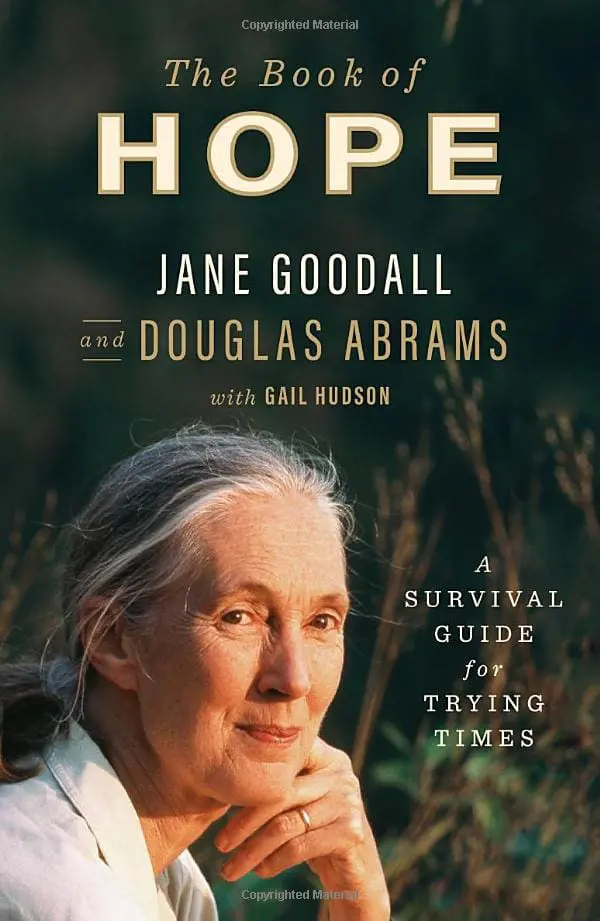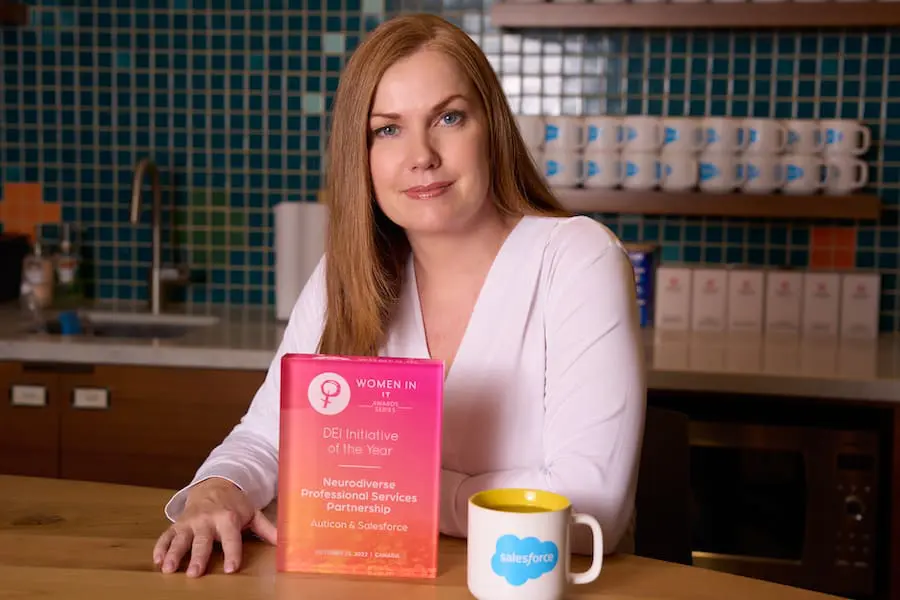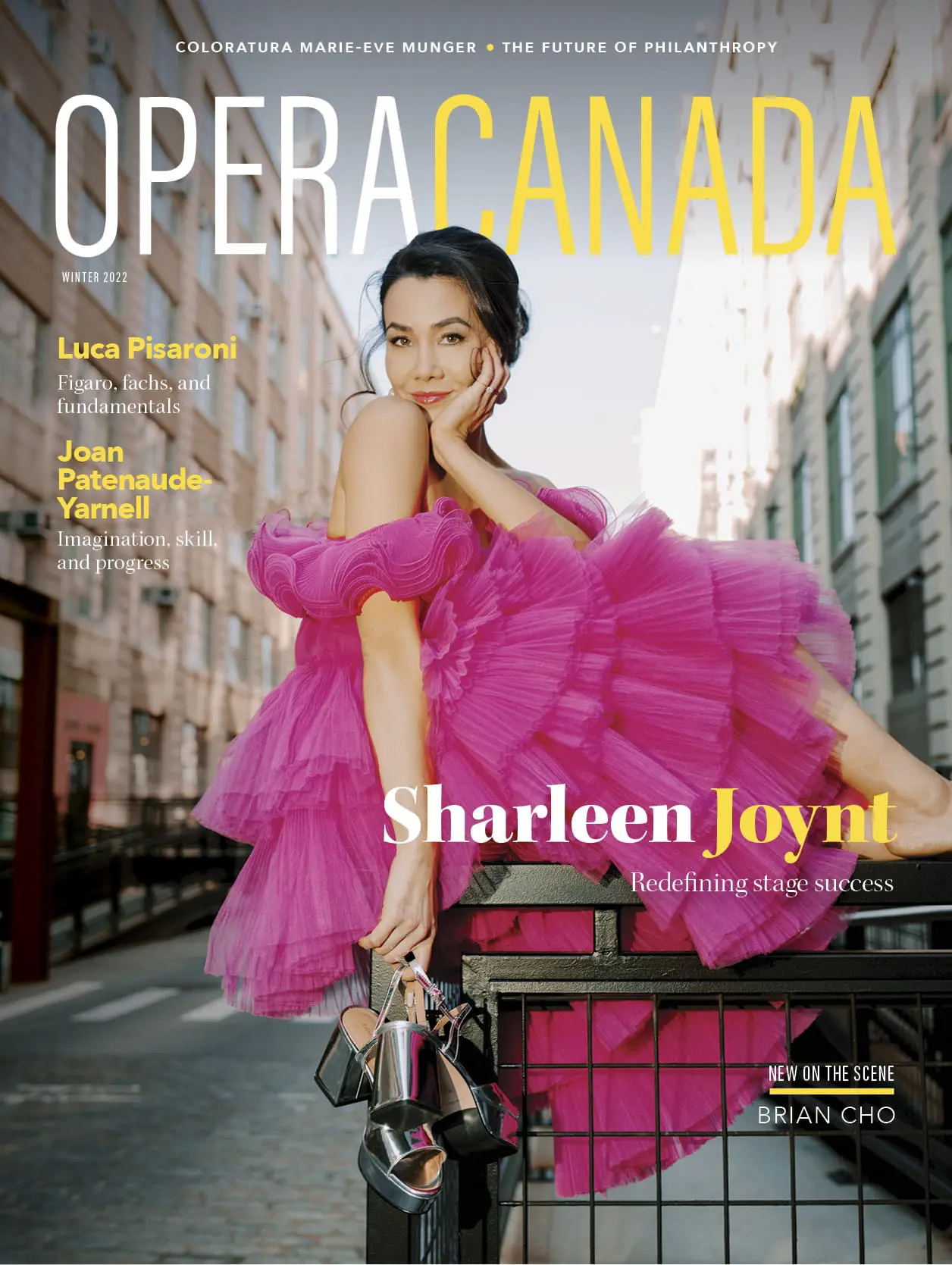SUBSCRIBE TO DIGITAL AND/OR PRINT MAGAZINE
SPEED ROUND WITH
JULIE HANSEN
Favourite visual artist?
Toronto artist, Ruth Thorogood. All sales go to helping local homeless populations.
Book you’re currently reading?
The Book of Hope by Jane Goodall
Last trip you took
on your Harley?
3,500 km to Lunenburg, NS
and back!
*this text was originally published in the winter 2022/23 print version of Opera Canada magazine
As Global Executive Advisor at Salesforce JULIE HANSEN’S success is tied to her ability to apply cross-disciplinary expertise to simplify complex problems.
With degrees in business, computer science and psychology and professional education from MIT Sloan and Sustainable Business Strategy from Harvard, Hansen is committed to paying it forward; she serves as a judge and advisor to the WE Empower UN SDG Challenge (a global business competition highlighting women entrepreneurs) and she founded Salesforce’s first 100% neurodiverse professional services partnership with Auticon, an organization where all of their consultants are on the autism spectrum.
Lucia Cesaroni: How can opera better embrace innovative change as a sector more broadly?
Julie Hansen: First you have to want to. Often, unless it’s more painful to stay in the current situation than to move into a new one, change doesn’t happen. Have you ever wondered why some businesses are stuck in the status quo and aren’t evolving with the times? The pressure hasn’t gotten to a level for the organization to react. One hot pressure area invoking change and even transforming businesses is talent loss. Today, many people choose employers based on company culture. A bad culture and experience will cause attrition. However, when a company gets it right and employees are having a great work experience, it actually creates a very positive ripple effect. It translates directly to the customer’s positive experience, loyalty and desired growth.
When I advise organizations, a main focus with leadership is the customer experience vs product offerings. When examining that experience and all of its facets for success, the question often comes up: What is this company doing for the people? The customer experience and the intersections with the employee can be key. What is the employee experience? Do they enjoy working there or is it just a job? Are they creating progressive opportunities? How are they creating a values-based culture that attracts and retains talent? And most importantly, is the employee experience translating into engaging customer experiences that will drive business? If not, perhaps it’s time for the business to evolve.
To approach change you need to ask the right questions and engage the right people. Who should be a part of transforming the business? What problem are you trying to solve? Do you have diversity in perspectives and experiences or are the usual suspects in your transformation team? Innovation thrives on diversity of thought and that means injecting new and different people. Fresh eyes, meaning having a beginner’s mind to challenge the status quo. I would be fresh eyes for opera. If I looked at opera and all of its facets, I am sure I would question many of the ways things are done today and have ideas for change.
LC: How do we keep top administration and leadership talent in opera?
JH: Reframe the employee as your ‘customer’. And ask them! Twice a year, Salesforce sends out an employee-wide survey. The survey asks about values, culture, what is good, bad and even if you are likely to be here next year. Then, in the spirit of transparency the results are shared with employees. That transparency is important. It creates trust. What is also important is what the leadership does next. The leadership takes ownership and accountability, addressing the findings openly and indicating how they will address low scores. One thing is for sure. Today, employees care about work culture. A lot of people want to work at companies like Salesforce because of the positive culture of the company that includes values of trust, innovation, equality and more. People want to work for organizations that provide opportunities for career progression, good pay, mentorship, work-life balance etc. However, today’s employee look deeper into companies. They want to join organizations with similar values, especially ones tied to purpose and the planet.
LC: Back to customer experience—opera should sell an amazing evening out, where the opera itself is one-third of the experience. More research, partnerships and curation.
JH: So, consider that customers today have rapidly changing preferences and expectations. How do you determine the best way to do this? Put your ticket holder at the center and then start to conceive of the entire customer journey and experience you would ultimately like to provide that ticket holder. What happens before the show? After? In the weeks leading up? Keep your customer close.
Airbnb is capturing and analyzing tons of customer data related to the apps search engine queries. They are finding that their customer’s preferences are changing. During COVID, everyone was searching ‘30 days or more, no destination’. They didn’t care where they went, they just wanted to get away! That’s valuable insight. Airbnb can use data to evolve their offerings. For example, Paris in June is in high demand, expensive and it sells out. There is demand to grab for people who want to travel in June. So how does Airbnb create alternative offerings that aren’t ‘Paris’ but still amazing? Since they can see what customers are searching for, they can capture that demand by creating new offerings. Michigan is a far cry from Paris. But if the offer is right, people will go. Imagine a really cool tree house experience that comes with a jeep ride into downtown for a night out. It’s a more local, less costly alternative for June travel growing revenue for Airbnb.
Customers buy tickets to the opera. But the ticket isn’t ‘really’ what they are buying. They are buying an experience. So, how much of that experience would an opera company like to own? Can you expand that experience? Can you create a journey vs an event? Will this attract new opera lovers? And when they become your customer, how do you personalize their experiences? Can you leverage data like Airbnb does to expand?
LC: So, leveraging data to design a more personalized customer experience.
JH: Yes. And get creative. Ideate, starting with the WHY and question how things are done today. There’s a company called IDEO. It re-imagines everything, asking ‘Why do we always…?’ or ‘How might we…?’ What are the desired outcomes? When you think about Kodak or Blockbuster, they ignored the data and signals for change. They disappeared. I wonder, what will disrupt opera?
LC: What about mentorship? Can this be part of the interdisciplinary mix? Build shared culture?
JH: People struggle to find mentors and I suspect a lot of leaders shy away from mentoring because it’s perceived as a big lift. Perhaps the purpose isn’t clearly outlined or the expectation is for a long term commitment mentors don’t have time for. In opera, you might reconsider mentorship as a network around solving a problem that must be clearly defined. Reinvent mentorship! In this case your ‘customer’ is say, the young artists. How do they want to advance? How can you reinvent the mentorship experience?
LC: Patrons, board members, even contractors like marketing/PR or management consultants could share their valuable skills.
JH: And if they know they’re part of a community, the onus isn’t so heavy on any one person. Perhaps putting the groups into a digital space where they can work with each other and have patrons available for questions or for direction on a certain project. This spreads the wealth and gives more flexibility. And creates opportunity for reverse-mentoring, too.
LC: Yes! Artists have many, valuable, transferable skills. High time to articulate them to the wider community.















